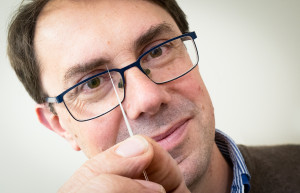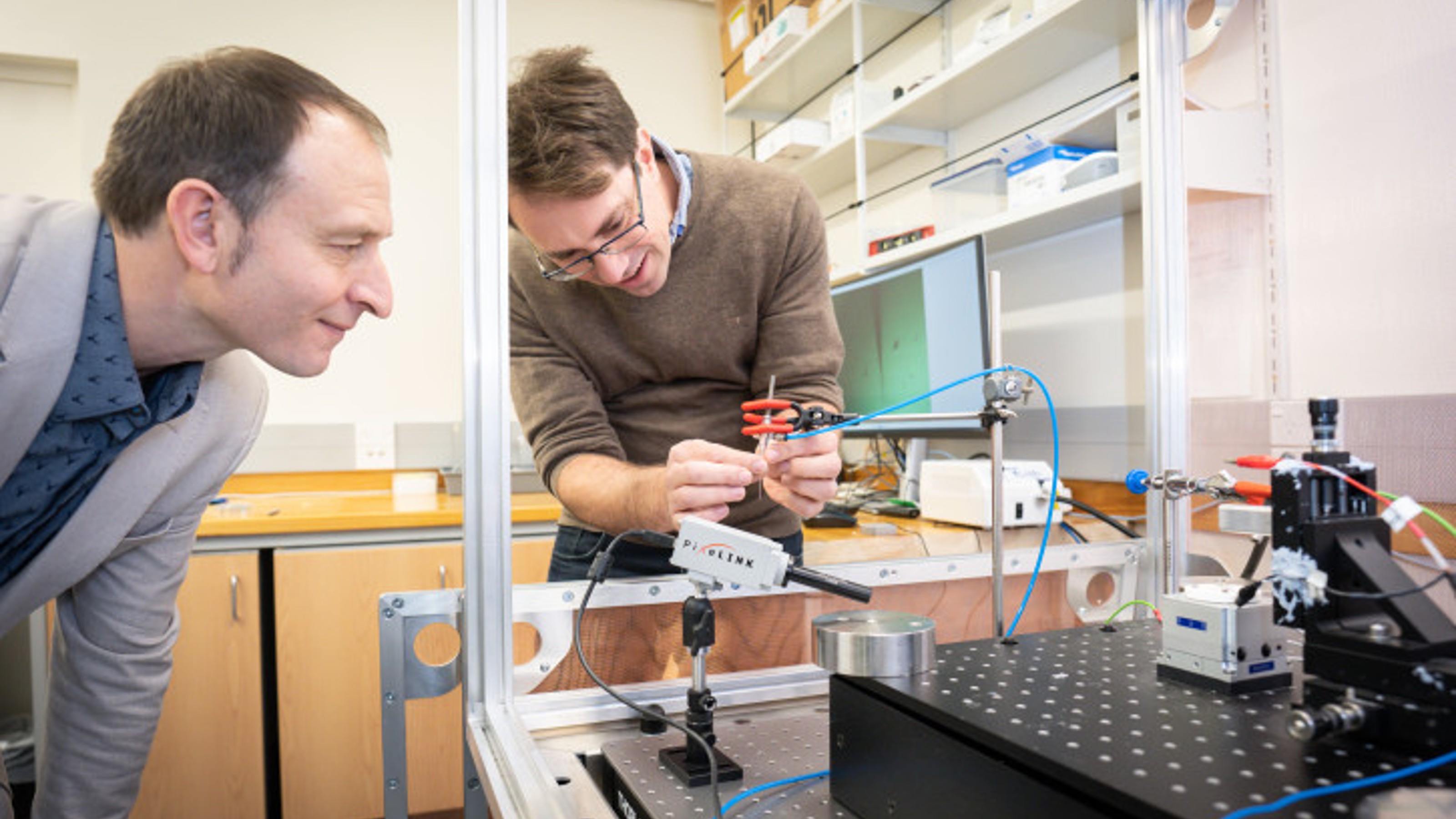Nanoscale Electrochemistry for a Low-Carbon Future
Our research uses nanoscale electrochemical methods to study energy storage & conversion technologies such as batteries, fuel & electrolysis cells, and sensors.
Research focus

Our research provides fundamental new insights into a class of chemical reactions called electrochemical reactions. Electrochemical reactions are extremely important for the transition to a low-carbon economy as they allow renewable electrical energy to be used to drive chemical reactions in advanced electrochemical technologies. These technologies include batteries, supercapacitors, fuel cells, electrolysis cells, and electrochemical sensors.
Scanning Electrochemical Probe Microscopy
We design, construct, and use unique scientific instruments known as electrochemical scanning probe microscopes. These microscopes are revolutionizing electrochemistry and have produced a step change (in both resolution and functionality) in the ability to visualize and map chemical reactions. Our research has introduced the ability to map chemical reactivity, pH, surface charge, multiple electroactive species, and local topography with 10s of nanometer resolution.
Nanostructured Materials
We study how chemical reactions vary on complex nanostructured surfaces, aiming to understand how the surface nanostructure influences the chemical reactivity for advanced electrochemical technologies.
We have studied a wide variety of surfaces, including carbon nanotubes, graphene, highly oriented pyrolytic graphite, boron-doped diamond, polycrystalline metal surfaces, microcrystals, dentine, enamel, single nanoparticles, single living cells, chloroplasts/thylakoid membranes, two-dimensional transition metal dichalcogenides, and MXenes.
Our research impacts a wide variety of fields, including materials science, biological systems, cancer research, pharmaceuticals, oral health, sensor technology, battery technology, supercapacitor technologies, and electrocatalysis.
Current research projects include Electrolysers for Low-cost Green Hydrogen, Electrochemistry on Two-Dimensional Materials, and Power-to-X: Carbon Dioxide to Aviation Fuels.
Find out more by visiting the McKelveyLab website.
Academic staff
Senior Lecturer, Physical Chemistry
School of Chemical and Physical Sciences


